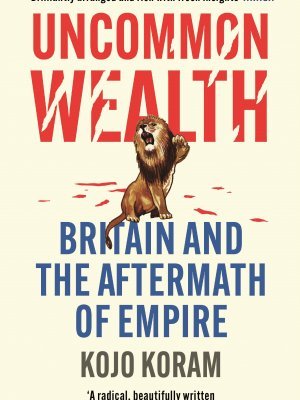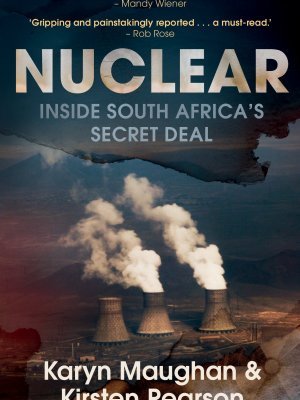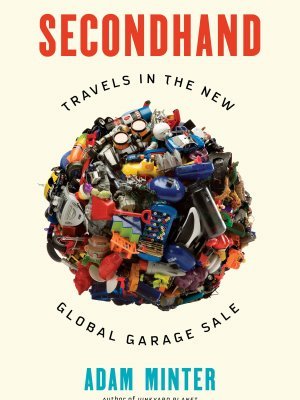Secondhand
Travels in the New Global Garage Sale
Adam Minter
Bloomsbury – R890.00
Some animals and birds hoard, but that’s usually their way of storing food for future use. Human beings, on the other hand, hoard because we just can’t get rid of unused or unwanted stuff. As Adam Minter reports in the preface to Secondhand, “one 2006 study of Los Angeles middle-class homes found that 90% of garage space is now used to store stuff, not automobiles.” Look at any South African city and you’ll see one obvious growth phenomenon: storage units. Almost all of them will be filled to the brim with stuff that we need to dump but just can’t bring ourselves to do.
And if we do, finally, get Mari Kondo’s organising methodology and decide only to keep the things that bring us joy, what happens to all the rest?
That was the question Minter, a Bloomberg journalist, set out to explore. Where do all those unwanted dining-room tables and chairs go when Mum and Dad head to the care home? Or the unwanted computers that still work, sort of, but have been left in a cupboard because you’ve upgraded? What about the mountains of clothing discarded every year? Is it all recycled, or does it just end up in a landfill?
Travelling extensively between America, Mexico, Japan, India, Ghana and Malaysia, where he lives, Minter tracked all manner of objects, from second-hand cars to vintage boomboxes. For many of the people he encountered or interviewed along the way, the word ‘recycle’ actually means ‘reuse’. For example, did you know that the word ‘shoddy’ comes from the coarse fabric produced when reusing wool? According to Minter, second-hand wool can’t be used for anything other than producing more wool and is used in “low-cost blankets and other garments marketed to the poor and - significantly - the military.”
From its origins in the Victorian mills of northern England via Prato in Italy, the bulk of the world’s shoddy is now produced in a town called Panipat in India. But that seems unlikely to last because musty-smelling, rough shoddy is being fast replaced by cheaper, lighter and much smoother Chinese-produced polar fleece. So what’s going to happen to the world’s discarded woollens in the future remains to be seen.
Books, magazines, porcelain ornaments, old board games, used children’s car seats – if you have owned any kind of object or device, the chances are that Minter has seen it moving from place to place on an endless value chain. It is ever-decreasing in value, yes, but almost always moving from you to someone who can reuse it.
Used computers and gadgets like smartphones and TVs are of deep interest, with millions being sold by specialist dealers in America to West Africa. Ghana, in particular, has hundreds of repair shops that can take your old Dell, Fujitsu or IBM laptop and turn it into something that’s almost as good as new. Minter watches a master technician restore a 25-year-old tube TV to working order. The cost of the repair is about US$5, or R75; maybe a dollar or two more if parts are needed. Second-hand cars, too – the Ghanaians are expert restorers.
This brings us to ask some questions. Why is it so difficult to repair a smartphone? Why can’t I replace the battery in my iPad? Why would the warranty on my new car be voided if I took it to an unapproved dealer?
One of Minter’s conclusions is that right-to-repair laws need to change radically if we are to avoid contributing more to the ever-growing mountains of stuff. Secondhand is a fascinating read, with some deep insight into businesses that I had never even imagined existed. And yes, as I write this and look around my office, there’s absolutely no doubt – I really do have too much stuff!
Nuclear
Inside South Africa’s Secret Deal
Karyn Maughan and Kirsten Pearson
Tafelberg – R320.00
As I write this review, Russian armour and troops regroup in southern and eastern Ukraine for an all-out assault on the Donbas region of that severely bloodied country. Russia’s long-serving dictator, Vladimir Putin, has declared peace negotiations ‘dead’. It’s a chilling backdrop against which to read one of the most penetrating exposés yet of the deep corruption at the heart of the ruling ANC.
Investigative journalist, Karyn Maughan, and colleague, Kirsten Pearson, a former National Treasury insider, lay bare what can only be described as a plot by former President Jacob Zuma and his ally, Putin, to sell South Africa some 9.6GW of nuclear power. Had it taken place, the cost would have been around R1 trillion, and South Africa would have been left bankrupt.
At the heart of their investigation is Zuma’s obsession with the Russians, believing them to be first-rate allies. It is to the Kremlin Zuma turns when – apparently – he was poisoned by one of his wives. After receiving treatment in Moscow, Zuma comes home and starts driving the nuclear deal. The fact that nobody has ever delivered proof of the poisoning and, as we see later in the book, the use of corrupt officials like Brian Molefe and Anoj Singh at Eskom, along with the egregious Gupta clan, lead to suspicions that perhaps money, and not poison, was his central motivator.
Nuclear is yet another fine addition to the increasingly long canon of investigations into the ANC’s deviousness, crookery and dishonesty. It’s also worth noting that had Maughan and Pearson undertaken a similar piece of work inside Putin’s Russia, they would either now be dead or in jail.
Uncommon Wealth
Britain and the Aftermath of Empire
Kojo Koram
John Murray – R355.00
Although I was born in Johannesburg, my parents were British and, aged nine, I was sent “home” to school in England. The late 1960s was a time when being British still meant that you had “won first prize in the game of life”, to use the hackneyed phrase and the British Empire, although crumbling rapidly, was still widely considered to have been a ‘Good Thing’. South Africa, of course, had been part of that empire for some 200 years or more, only severing its ties in 1961 when it left the Commonwealth. (We rejoined in June 1994, after liberation, but I think it’s fair to say that nobody now thinks of the Commonwealth as representing the British Empire.)
Throw forward to today, and whether or not the British Empire was a ‘Good Thing’ is very much an open question. Kojo Koram, who teaches at the School of Law at Birkbeck College, University of London, applies a scalpel to it in his new book. His name alone will tell you that he is of Ghanaian heritage; the British Empire seen through the eyes of a black African is a very different proposition to the one I was fed while “home” at school.
But slavery is only one part of his dissection of the Empire and the structures that remain in place, even though it is supposedly no more. Koram’s approach is one well-known to business journalists: follow the money. Why is it, he asks, that three of the world’s most secretive yet effective offshore tax havens are still British? The British Virgin Islands, the Cayman Islands and Bermuda are all in the Caribbean, yet none has opened for full independence. How come so much dodgy money sloshes about in the City of London? (Did someone say ‘Russian oligarchs’?) What role is played by debt in Britain’s former colonies, and why are so many still so poor? Has Britain even attempted to reckon with the legacy of its colonial past, or is it just trying to pretend that it didn’t really happen and it’s time to move on?
Given South Africa’s role in that colonial past, its impact on the structure of our society and the deep-seated problems with which we are, as a nation, trying to grapple, Uncommon Wealth is important reading.








